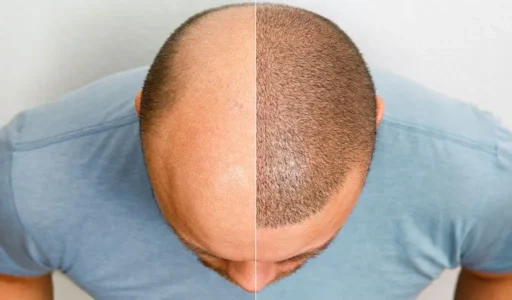Age and Hair Loss Severity
To determine your eligibility for a hair transplant in Chicago, the age and severity of your hair loss play crucial roles.
Age is an important factor to consider when determining if you’re a suitable candidate for a hair transplant at a cosmetic surgery center in Chicago. Generally, individuals who are in their twenties or thirties may not be the best candidates, as their hair loss pattern may not be fully established yet. On the other hand, individuals in their forties or fifties, who’ve experienced significant hair loss, may be better candidates for both a hair transplant and cosmetic surgery center services.
Severity of hair loss also plays a significant role. If your hair loss is minimal or in the early stages, other treatment options such as medications or lifestyle changes may be more suitable. However, if your hair loss is advanced, a hair transplant at a cosmetic surgery center may be the most effective option for restoring your hair.
It’s important to consult with a hair transplant specialist at a cosmetic surgery center to determine the best course of action based on your individual circumstances.
General Health and Medical Conditions
Before considering a hair transplant, it’s important to regularly assess your general health and any existing medical conditions. Your overall health plays a crucial role in determining the success rate of a hair transplant and minimizing potential risks and complications from both a hair transplant and cosmetic surgery center procedures.
It’s recommended to consult with a qualified healthcare professional who specializes in hair restoration and cosmetic surgery center services to evaluate your medical history and ensure that you’re a suitable candidate for the procedure. Certain conditions, such as uncontrolled diabetes, autoimmune diseases, and certain skin disorders, may increase the risk of complications during and after the surgery.
Additionally, factors like smoking, obesity, and poor nutrition can also impact the outcome of the transplant and other cosmetic surgery center procedures. Taking proactive steps to maintain good overall health can greatly enhance the success and safety of your hair transplant procedure and other cosmetic surgery center services.
Donor Hair Availability
Assessing your general health and medical conditions is important when considering a hair transplant at a cosmetic surgery center, as it will determine the availability of donor hair for the procedure. The success rates of hair transplants are influenced by the quality and quantity of donor hair available. Donor hair is typically taken from the back or sides of the scalp, where hair is genetically resistant to balding. This ensures that the transplanted hair will continue to grow in its new location.
However, if you have extensive hair loss or a limited amount of donor hair, alternative hair restoration methods from a cosmetic surgery center may need to be considered. These methods include non-surgical options such as medication or low-level laser therapy, or surgical options such as hair restoration using body hair or artificial hair implants.
Consulting with a qualified hair transplant specialist at a cosmetic surgery center will help determine the best approach for your specific situation.
Realistic Expectations and Mental Preparedness
Once you have assessed your donor hair availability, it’s important to realistically and mentally prepare yourself for the hair transplant process.
It’s crucial to have realistic expectations about the outcomes of the procedure from both a hair transplant and cosmetic surgery center standpoint. While a hair transplant can provide significant improvements, it’s important to understand that it may not result in a full head of hair or completely restore your previous hairline.
Discussing your expectations with a qualified hair transplant surgeon at a cosmetic surgery center can help you understand what can realistically be achieved based on your unique circumstances.
Additionally, mental preparedness is vital for a successful hair transplant journey. It’s normal to have some anxiety or nervousness before the procedure, but having a positive mindset and emotional support from both family and friends or even support groups at a cosmetic surgery center can greatly help you through the process.
Financial Considerations and Affordability
To ensure you can afford a hair transplant at a cosmetic surgery center and consider the financial implications, it’s important to explore the costs associated with the procedure. Hair transplant costs can vary depending on several factors, including the extent of hair loss, the number of grafts needed, and the location of the clinic. It’s recommended to consult with multiple clinics, including cosmetic surgery centers, and get cost estimates to find the best option for you. It’s also important to note that hair transplants are considered cosmetic procedures and aren’t typically covered by insurance. However, some insurance companies may offer coverage for hair transplants if they’re deemed medically necessary, such as in cases of hair loss due to injury or illness.
It’s important to check with your insurance provider to determine if you have any coverage for a hair transplant and other cosmetic surgery center procedures.
Conclusion
In conclusion, there are several criteria and eligibility requirements for individuals seeking a hair transplant from both a hair transplant and cosmetic surgery center perspective. These include factors such as age and hair loss severity, general health and medical conditions, donor hair availability, realistic expectations and mental preparedness, as well as financial considerations and affordability.
It’s important for individuals to meet these requirements and have a thorough understanding of the process before considering a hair transplant and other cosmetic surgery center services. If you’re interested in related procedures such as body plastic surgery in Chicago or loose skin surgery, be sure to consult with specialists in those areas for tailored advice and information.













